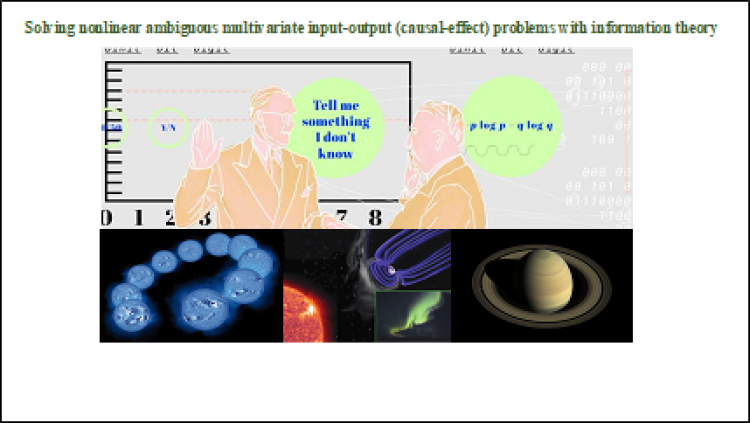Space Weather Applications of Machine Intelligence (SWAMI) Seminar Series
Hosted by: Space Weather Technology, Research, and Engineering Center
Presented by: Simon Wing, Applied Physics Laboratory, Johns Hopkins University, Laurel, MD
Thursday 8 October 2020, 11:30am – 12:30pm (MDT)
https://cuboulder.zoom.us/j/94121439377
Passcode: 674724
Many space weather problems can be characterized as input-output or causal-effect problems in which multiple input variables can be linearly and nonlinearly causally related to multiple output variables. Moreover, the input variables can be linearly and nonlinearly correlated with one another, which may lead to ambiguities as to which variables are really the main drivers of the system. Isolating the effect of an individual input variable or driver can be challenging. Likewise, identifying the response to a particular input variable can be nontrivial in such system. Information theory can help untangle the drivers, describe the underlying dynamics and response, and offer constraints to modelers and theorists, leading to better understanding of the system. To illustrate the methodology, a few examples are presented: (1) identifying causalities in the solar cycle and sunspot productions; (2) untangling the drivers of the solar wind–radiation belt system; and (3) identifying the source of the periodic radio wave emissions at Saturn. Implications to other stellar systems and exoplanets are discussed.


